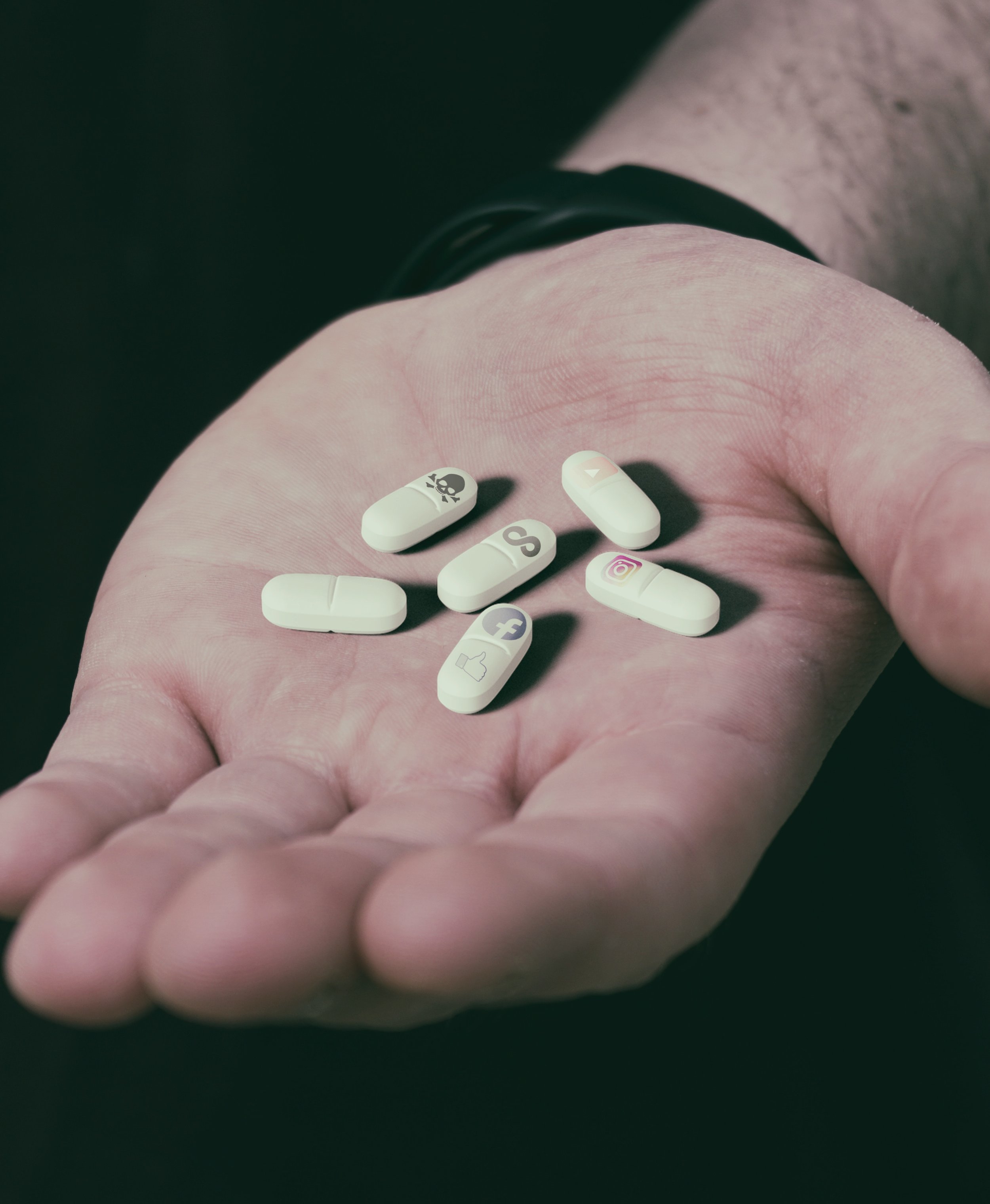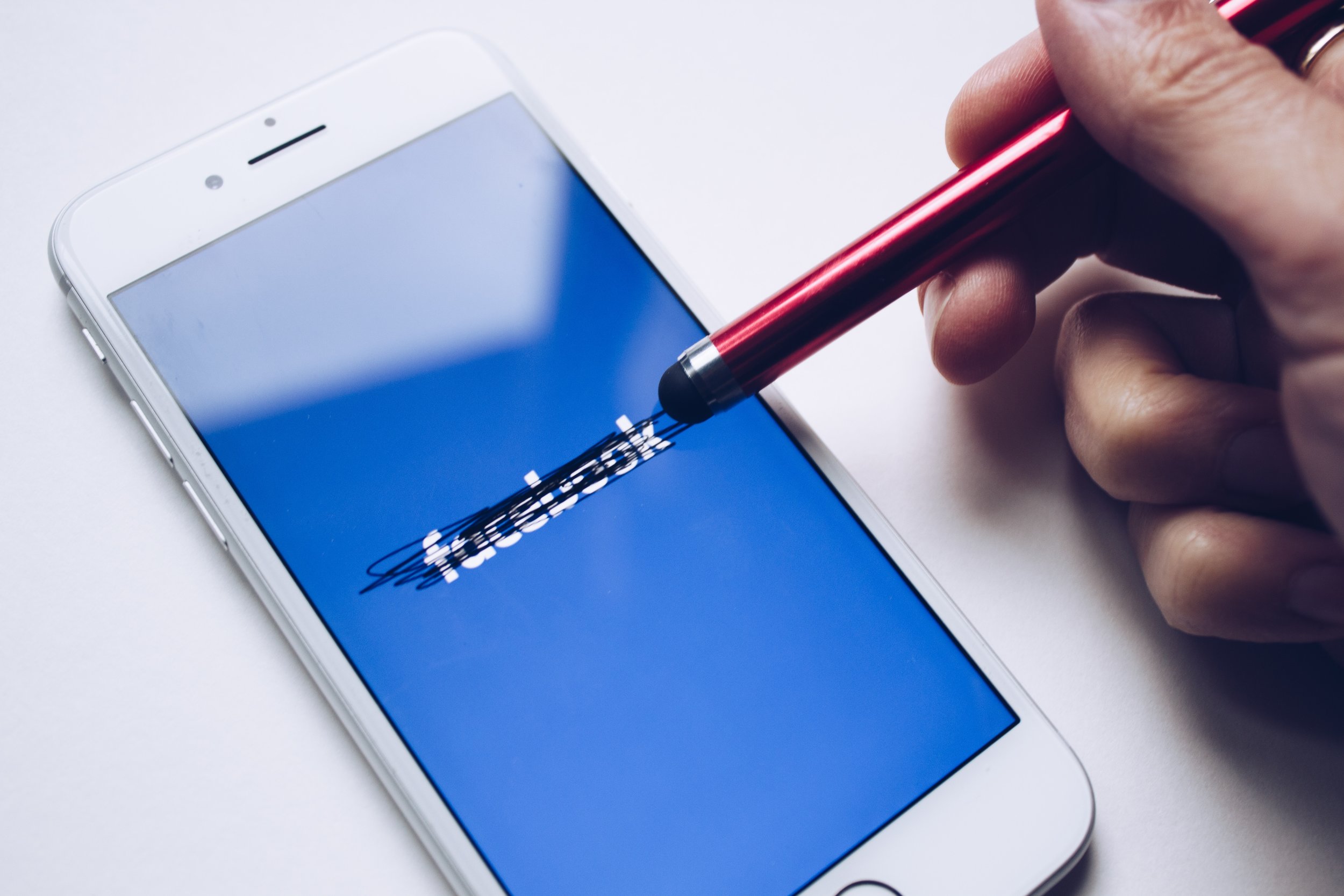Why A Social-Media Professor Quit Facebook – And Why You Should, Too
Photo by Marc Schäfer on Unsplash.
This weekend I did what I’d been threatening to do for months – I deleted my Facebook and Instagram accounts, following the guidelines laid out by The New York Times.
By all measures I should have been a Facebook proselyte. I aligned with the target demographics, I Instagrammed, I had the entire Facebook family of apps on my phone (not a Facebook phone, but still), and I used Facebook to promote my music and my business, as well as the ventures of others.
On top of that, I had a professional interest in the platform, having researched social-media communication techniques and taught Social Media and Public Relations at the University of Wisconsin-Stevens Point.
(Which reminds me: Undefeated season! NCAA D-III hockey champs! Go Dawgs!)
Even at my totally connected peak I wasn’t a heavy Facebook user or follower. I used it an hour or two a week; my friend list was small – it always felt creepy reaching out to anyone significantly younger than me, which is just about everyone – and my business use of the platform was cursory at best.
However, that’s not why I deleted Facebook, or why I’m encouraging you to follow my lead.
Facebook needs to go because it’s the worst kind of friend. You tell it everything and it doesn’t keep your secrets. You trust it and it betrays you.
Facebook has systematically taken a cavalier and exploitative approach to its most valuable commodity, and the most valuable commodity of its users: their data.
Photo by Glen Carrie on Unsplash.
Let’s look chronologically at some of the ways Facebook has betrayed users’ trust:
January 2012: Facebook surreptitiously alters its privacy settings, allowing the platform to collect more user data.
May 2013: Cambridge University professor Aleksandr Kogan rolls out a quiz app using Facebook’s Graph API. More than 270,000 users take the survey, giving away their own data, plus the data of millions of their friends.
June 2014: Facebook begins a clandestine experiment on mood adjustment by showing users highly percentages of positive or negative posts, without their knowledge or consent.
July 2016: Donald Trump hires Cambridge Analytica. Throughout the 2016 presidential campaign, misinformation and disinformation campaigns conducted via Facebook by the Trump campaign and various foreign actors prove decisive in Trump’s eventual victory.
March 2018: Cambridge Analytica scandal breaks; subsequent revelations showed that many other large firms, including Amazon and Google, also were granted most-favored-nation access to Facebook data.
June 2018: Facebook says a software bug may have revealed the posts of up to 14 million users.
September 2018: Facebook reveals that a security vulnerability exposed up to 50 million accounts to being taken over by hackers.
November 2018: Facebook mounts a massive disinformation campaign to try to deflect accusations that Facebook was a knowing party to election manipulation using the platform.
March 2019: Facebook reveals that millions of passwords were stored as plain text, making them vulnerable to hackers.
These scandals have not changed Facebook’s core motives in the least. As The Guardian points out, regardless of negative publicity or user outcry Facebook “will still watch everything you do, will dictate what you read and see in your Newsfeed, and will feature advertisements targeted at you based on the massive surveillance system Facebook has built over the past decade … It will still chip away at democracy and starve journalism.”
Plus, Facebook will continue to track and collect data from you, regardless of your privacy settings or permission levels.
For instance, when you enter a phone number as part of two-factor authentication, Facebook stores that number and links it to your profile, so that anyone with a database of phone numbers can run them up against Facebook accounts.
It’s the Klondike of data-mining, with Mark Zuckerberg playing claim-jumping Yosemite Sam.
Photo by Thought Catalog on Unsplash.
And we haven’t even talked about the sketchy metrics, the fraud factory that is Facebook’s promoted posts, or Facebook’s oft-stated megalomaniacal goal that it wants to be the platform that the world runs on (or the platform that runs the world, depending on your view).
If Facebook is that bad, why don’t more people do away with it? Pure FOMO, my friends.
In my case, I know that once I bid adieu to Facebook I’ll never again get to read about or see:
My old friend’s new dog.
My distant cousin’s horse.
My old co-worker’s horse.
The snarky comments of someone I used to say hi to but don’t anymore.
The obituary notices from my high-school class.
The tuba-playing accomplishments of the grandson of the person who introduced my wife and I, 27 years ago.
It’s not a lot when you look at it that way, just the scraps and sweepings of other people’s lives, put in a sort of context to make your own life look more or less glamorous or meaningless. But it always looked more substantial and significant when it was on Facebook.
The opinions of one social-media professor don’t amount to a hill of beans in this crazy world, but the underlying reason why I did away with Facebook was because it scared me. It was hulking bully Donald Trump stalking Hillary Clinton in the debates, with Robert Mitchum tattoos on both fists.
Will I miss Facebook? Sure. Will it miss me? Probably not. It has bigger fish to fry – and a world to conquer. And it may just wind up like Jimmy Cagney in White Heat, on top of the world, as long as the users stay around.
But I’d stand back if I were you. I think it’s gonna blow.



